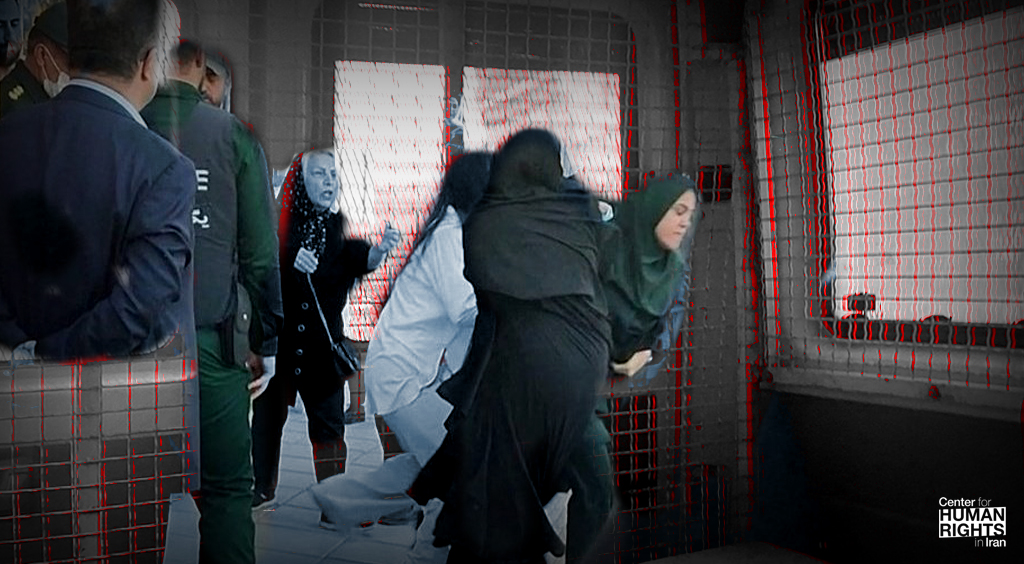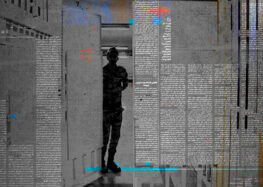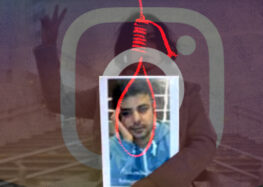Iran Ramps Up Violence and Repression Against Women and Girls Amid Regional Tensions

April 17, 2024 – The Iranian government’s escalating violence and repression against women and girls who refuse to comply with the state’s compulsory hijab law requires a firm international response, including codifying gender apartheid into international law as a crime against humanity, said the Center for Human Rights in Iran (CHRI).
“Amid increasing dissent at home and international attention focused on regional tensions, the Islamic Republic is grabbing the opportunity to intensify its campaign of repression against dissent,” said CHRI Executive Director Hadi Ghaemi.
“Women and girls in Iran are already subjected to severe discrimination in Iran, yet these actions significantly increase the threat of unchecked state violence against them,” he added.
“Public statements of condemnation by UN and government leaders are urgently needed, before more atrocities are committed against women and girls in Iran, and concrete steps should be taken to codify gender apartheid into international law as a crime against humanity,” said Ghaemi.
Disturbing recent video footage from Iran shows women and girls being violently pushed into vans (clip from Tehran, on April 16, 2024) in cities that include Tehran and Bushehr, after being detained by police for not covering their hair in public.
Another video shared online shows a young woman, her hair uncovered, having a seizure on the ground outside the metro in the Tajrish neighborhood of Tehran, after telling onlookers that the police confiscated her phone.
The clip also shows several police forces taking no action to help her as she convulses on the ground. Some onlookers were reportedly arrested for filming the scene.
Since Iran’s 1979 revolution, all women and girls have been forced to cover their hair and bodies, or face punishments that include detention or imprisonment.
Challenging the Hijab Has Become Akin to Challenging the Government
The state’s compulsory hijab law has been widely challenged across the nation since September 2022, when the killing in state custody of Mahsa Jina Amini, 22—just three days after she was arrested by the so-called “morality police” for alleged hijab violations—sparked months of anti-state protests that came to be known as the “Woman, Life, Freedom” movement.
Since then, women and girls in cities and towns across the nation have been appearing in public with their hair uncovered, with some publicizing their acts of civil disobedience by posting photos and videos of themselves online.
Although the government was able, after months of lethal force that left over 500 protesters dead, to repress the “Woman, Life, Freedom” street protests that carried on throughout the country in 2022 and 2023, they have not been able to stop all the women and girls who have been continuing to carry the torch of the movement by refusing to wear hijabs in public in cities across the nation.
In response, one year after the killing of Amini, the Iranian government proposed the “Chastity and Hijab Law” in September 2023, which intensifies punishments against Iranian women and girls accused of wearing inappropriate hijabs.
Although the Guardian Council has yet to approve the law, state security forces have intensified their harassment of women who appear in public uncovered in line with the pending legislation, including through violently accosting and detaining them, fining them, impounding their cars, and blocking their access to essential public and private services, such as banks and grocery stores.
Businesses and organizations that have allowed women to be in the premise with their hair showing have meanwhile been fined or shuttered.
Islamic Republic Leaders Double-Down on Violent Enforcement of Forced Hijab
On April 3, 2024, the country’s unelected “supreme leader” Ali Khamenei, in statements made to government officials, noticeably increased his demonizing of hijab-less women and advocated for stricter compulsory-hijab enforcement.
Then Tehran Police Chief Abbasali Mohammadian announced a new phase of tightened compulsory-hijab enforcement, followed by a similar declaration made by the police chief of the southern city of Bushehr. Both said a more “vigorous enforcement” of the law would begin in all public spaces starting April 13.
The result has been increased reports and footage of women and girls being violently detained by police forces.
Journalists are also facing increased pressure to not report the increased repression.
Woman journalist Dina Ghalibaf was detained in Tehran on April 16 after tweeting about being tasered and sexually harassed at the Sadeghiyeh metro station for being in public with her hair uncovered.
Growing Movement to Recognise Gender Apartheid in Iran
UN human rights experts have strongly denounced the Islamic Republic’s practice of “criminalizing the act of refusing to wear a hijab” through the “Chastity and Hijab” bill, asserting that it constitutes a clear violation of women and girls’ freedom of expression and is tantamount to gender apartheid.
International women’s rights activists, including from Iran and Afghanistan, launched a campaign in March 2023 aimed at securing formal recognition of gender apartheid as a crime under international law. The campaign’s ultimate objective is to dismantle the structures perpetuating gender-based discrimination and inequality in the Islamic Republic of Iran and under the Taliban regime in Afghanistan.
“We urgently call upon the international community… to address this urgent matter and take decisive action to end gender apartheid in Iran and Afghanistan,” wrote Nobel Peace Laureate Narges Mohammadi, who is currently imprisoned in Iran on sham charges aimed at stifling her peaceful human rights activism.
“Women and girls in Iran have been treated as second-class citizens in law and practice since the inception of the Islamic Republic, yet they haven’t backed down,” said Ghaemi. “In response the state is legalizing increased violence against women, leaving millions at risk of a myriad of rights violations or death.”
“Without a firm international response, the Islamic Republic will be emboldened to intensify its violence against women and its egregious violations of human rights,” said Ghaemi.
Read this report in Persian
This report was made possible from donations by readers like you. Help us continue our mission by making a tax-deductible donation.






